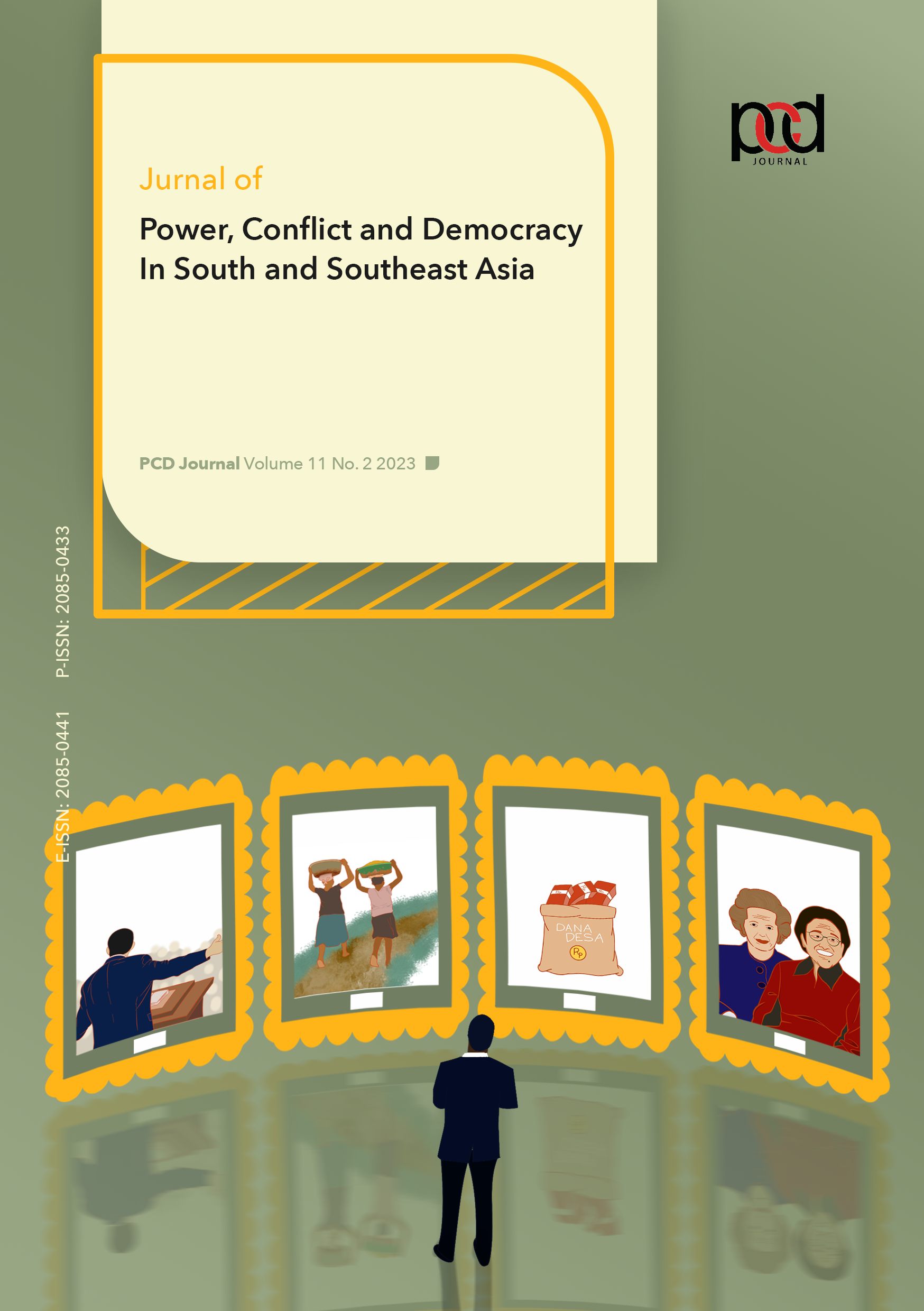The Impact of Indonesia’s Village Fund (Dana Desa) on Village Head Election
Corresponding Author(s) : Said Khaidir
PCD Journal,
Vol 11 No 2 (2023): PCD Journal Vol. 11 No. 2 2023
Abstract
Through the implementation of the Village Law in 2014, the Indonesian government seeks to promote rural development and village autonomy by decentralizing power. The 2014 Village Law has two important points: the village fund and the extension of a village head’s term. This article tested to what extent the village fund has impacted the village head election and whether the village fund has improved villagers’ political participation in running for the village head election. The method used in this study is quantitative through a survey of 96 random village head candidates in the 2016 village head election in 117 villages in Banjar Regency, South Kalimantan. The findings show that the village funds have an impact on the quality of the nomination of village heads and facilitate the public’s involvement in the election. This phenomenon underscores the importance of village funds in encouraging democratic practices and the grassroots community’s participation in village governance. Changes in regulations of village fund implementation influence the participation of village residents in running for village head election, encouraging them to participate in the democratic process at the village level.
Keywords
Download Citation
Endnote/Zotero/Mendeley (RIS)BibTeX
- Aspinall, E. (2014). When Brokers Betray: Clientelism, Social Networks, and Electoral Politics in Indonesia. Critical Asian Studies, 46(4), 545-570.
- Aspinall, E., & Rohman, N. (2017). Village Head Elections in Java: Money Politics and Brokerage in the Remaking of Indonesia’s Rural Elite. Journal of Southeast Asian Studies, 48(1), 31-52.
- BAPPENAS & BPS. (2015). Indeks Pembangunan Desa 2014. Jakarta: BAPPENAS & BPS.
- Briando, B., Triyuwono, I., & Irianto, G. (2017). Gurindam Etika Pengelola Keuangan Negara. Jurnal Akuntansi Multiparadigma, 8(1), 1-17.
- Dunleavy, P. (1991). Democracy, Bureaucracy, and Public Choice: Economic Approaches in Political Science. London: Routledge.
- Nelson, J., & Huntington, S. P. (1994). Political Participation in Developing Countries. Jakarta: Rineka Cipta.
- Kis-Katos, K., & Sjahrir, B. S. (2017). The Impact of Fiscal and Political Decentralization on Local Public Investment in Indonesia. Journal of Comparative Economics, 45(2), 344-365.
- Naidoo, K., & Finn, H. V. (2001). From Impossibility to Reality. A Reflection and Position Paper on the CIVICUS Index on Civil Society Project 1991-2001. Washington DC: CIVICUS.
- Paryoto. (2015). Menuju Desa Mandiri dan Sejahtera. Jakarta: IPDN.
- Pratikno. (2000). Pergeseran Negara dan Masyarakat dalam Desa: Arus Bawah Demokrasi. Yogyakarta: Lappera.
- Rahayu, A. S. (2018). Pengantar Pemerintahan Daerah. Jakarta: Sinar Grafika.
- Sjahrir, S. B., Kis-Katos, K., & Schulze, G. G. (2013). Political Budget Cycles in Indonesia at the District Level. Economic Letters, 120(2), 342-345.
- Vel, J., Berenschot, W., & Minarchek, R.D. (2016). “Report of the Workshop `New Law, New Villages? Changing Rural Indonesia”. Leiden: KITLV.
- Wasistiono, S., & Taher, I. (2007). Prospek Perkembangan Desa di Indonesia. Bandung: CV. Fokus Media.
- Wibowo, H., Mulya, I. T., & Mujiwardhani, A. (2019). Dampak Alokasi Dana Desa Bagi Pembangunan Daerah dan Kesejahteraan Masyarakat. Jurnal Anggaran dan Keuangan Negara Indonesia (Akurasi), 1(2), 164-178.
